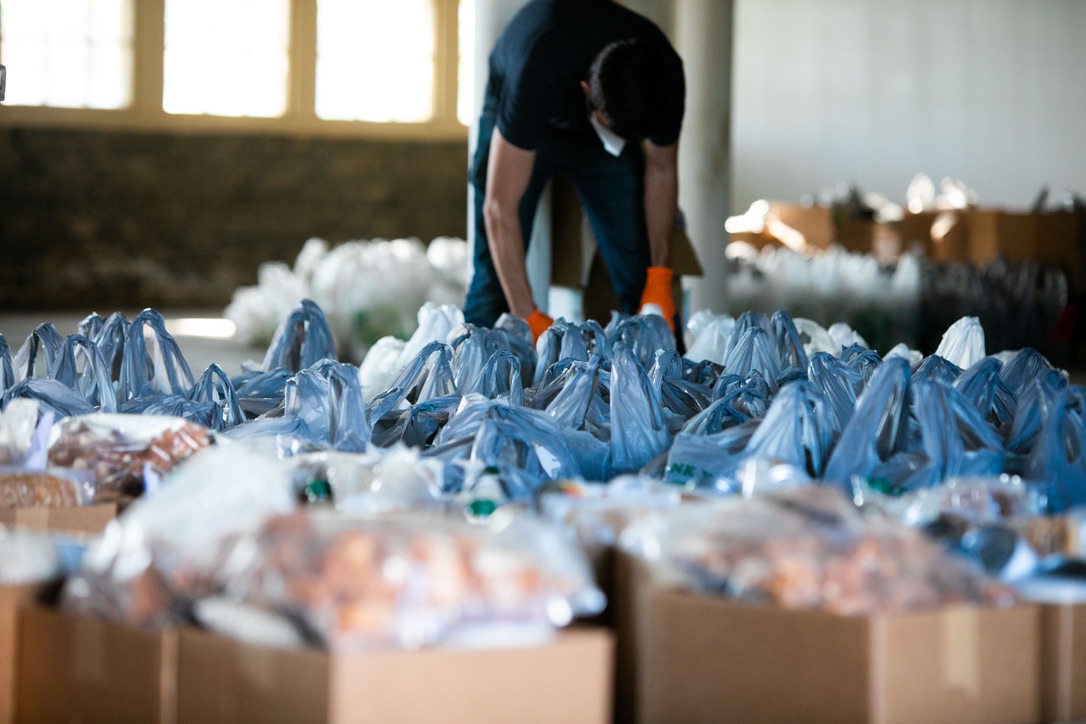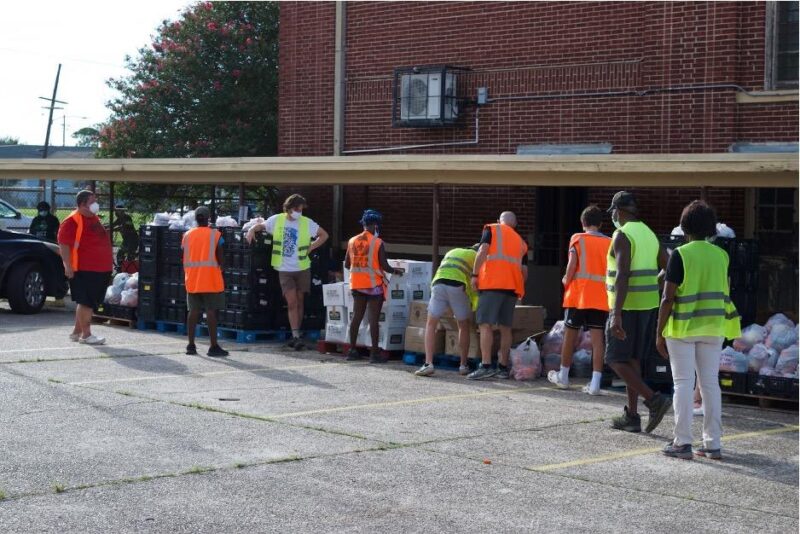 The Food Insecurity Crisis
The Food Insecurity Crisis
New Orleans is currently facing a serious crisis in food access. The rates of food insecurity in they city are well above the national average. The UN Food and Agriculture Organization defines food insecurity as the lack of consistent access to adequate, safe, and nutritious food to support a healthy life. The presence of widespread food insecurity in New Orleans significantly affects public health. Regular dietary nutrition is a crucial component of a healthy lifestyle and disease prevention. Inadequate food access leads to adverse health outcomes. Food-insecure households are more likely to experience poor physical and mental health; children are at an increased risk for cognitive and developmental problems, and adults are more likely to suffer from chronic illnesses. Communities with high rates of food insecurity report higher BMI levels and hospitalization rates compared to communities with sufficient food access. Furthermore, the stress of uncertain food access amplifies the potential health concerns associated with food insecurity. Chronic stress can destroy a person’s body on the molecular level leading to even more health issues.
Food insecurity disproportionately affects low-income households with less socioeconomic mobility. As a result, the cycle of food insecurity recurs in low-income communities. Even if an individual can escape the cycle, the physical and mental tolls of food insecurity persist. People who no longer suffer from food insecurity continue to suffer from depressive disorders and unhealthy trauma responses that make it challenging to support healthy behaviors and well-being. The most effective way to combat food insecurity is prevention. Local organizations, like Culture Aid NOLA, significantly contribute to the prevention of food insecurity in New Orleans.
What is Culture Aid NOLA?
Culture Aid NOLA was founded during the COVID-19 pandemic as a non-profit organization that works to improve food access in New Orleans. The organization established food distribution sites in neighborhoods with especially high rates of food insecurity, based on a “no barrier, stigma-free” philosophy. These sites provide access to food-insecure people without prohibitive barriers, such as income requirements, which standard food-aid programs require. The number of families a person is receiving food for is the only information requested, to ensure enough food is packaged at future sessions. Culture Aid NOLA emphasizes the notion that food is a universal human right that should not require barriers to access.
Social Effects of Food Insecurity in New Orleans
Since food insecurity evidently impacts more than just hunger, let’s address its direct effects on the New Orleans community. There is a positive correlation between an increase in food insecurity and the rate of gun violence in New Orleans. Therefore, a reduction in food insecurity in New Orleans may lead to a decrease in gun violence. Food insecurity also impairs parental relationships in affected households. In food-insecure households, parents are often unaware of their children’s recognition of the level of food insecurity in the home, and its contribution to a child’s mental state. Many children in New Orleans suffer from anxiety, depression, and OCD — without their parent’s knowledge — due to food insecurity. This persists in communities outside of New Orleans, including Harris County, TX where doctors have begun prescribing food prescriptions (FRx) to patients who exhibit mental or physical manifestations of potential food insecurity.
The Impact of Culture Aid NOLA in Our Community
 Culture Aid NOLA recognizes the multi-dimensional effects of food insecurity in the New Orleans community. The “no barriers” approach of its practice serves to aid New Orleans in more ways than one. The impact of Culture Aid Nola creates long-lasting social changes in our community. When Culture Aid feeds the food insecure, they serve the entire community. By supporting food access, Culture Aid effectively works to lower the level of violent crime in the city and improve the mental state of its residents.
Culture Aid NOLA recognizes the multi-dimensional effects of food insecurity in the New Orleans community. The “no barriers” approach of its practice serves to aid New Orleans in more ways than one. The impact of Culture Aid Nola creates long-lasting social changes in our community. When Culture Aid feeds the food insecure, they serve the entire community. By supporting food access, Culture Aid effectively works to lower the level of violent crime in the city and improve the mental state of its residents.
Getting Involved with Culture Aid NOLA
The volunteer experience at Culture Aid NOLA is incredibly empowering. The volunteers and facilitators promote a positive atmosphere through their optimistic attitudes and group-oriented work ethic. As people drive through the site to pick up food, they are greeted by welcoming volunteers and high-energy music. The social environment forms a community among the volunteers, and it creates connections between the volunteers and the people being served. Make a positive impact in your community by volunteering with Culture Aid NOLA. To get involved, visit https://www.cultureaidnola.org/shift_signup to sign up for a shift. Culture Aid NOLA distributes food on Wednesday afternoons, in the St. Roch neighborhood, and Saturday mornings, in the Seventh Ward. Support the food-access effort. Social empowerment begins at the local level.
 NOLAbeings Multimedia artist Claire Bangser created NOLAbeings as a portrait-based story project that marries...
NOLAbeings Multimedia artist Claire Bangser created NOLAbeings as a portrait-based story project that marries...  Voodoo in New Orleans: Reviving history: New Orleans fortune telling This article takes a deep dive into the history of Voodoo in New Orleans, its hybridization with Catholicism, and its present-day place in the city's culture. The author visits fortune-tellers in the French Quarter, using their guidance as a tool for introspection rather than a deterministic predictor of the future. Through her experiences in New Orleans, the author feels a mystical connection to both the past and the future.
Voodoo in New Orleans: Reviving history: New Orleans fortune telling This article takes a deep dive into the history of Voodoo in New Orleans, its hybridization with Catholicism, and its present-day place in the city's culture. The author visits fortune-tellers in the French Quarter, using their guidance as a tool for introspection rather than a deterministic predictor of the future. Through her experiences in New Orleans, the author feels a mystical connection to both the past and the future. 